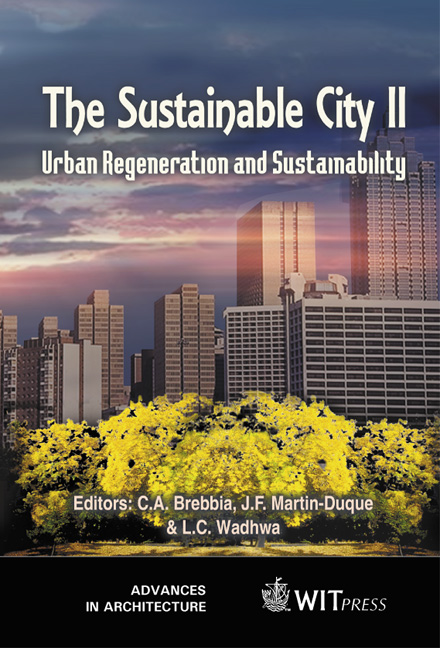A Comparative Tale Of Two Cities In Search Of Sustainability: London And Seattle
Price
Free (open access)
Transaction
Volume
54
Pages
Published
2002
Size
866 kb
Paper DOI
10.2495/URS020031
Copyright
WIT Press
Author(s)
T J Bartuska
Abstract
All cities can learn a great deal by comparing various urban growth paradigms and resultant planning strategies. This comparative tale will explore the contemporary dynamics of two cities: Seattle, Washington, USA and London, England, UK. This probing tale is in part motivated by Dickens’ classic A Tale of Two Cities and his eloquent expression of the best and worst of times. Today, this is a parallel dialectic as we search for sustainable urbanism over auto driven sprawl. Seattle’s story is revealed in a probing study entitled \“The Pierce Report.” It explored issues common to most cities and concludes, \“We can work towards a dream or let the nightmare happen.” This report motivated a proactive study called the Vision 2020 program that generated an analysis of five urban growth scenarios. The alternatives were analyzed as to their social, economical and environmental impacts upon this beautiful region in the Pacific Northwest. The public participated in an elaborate review and voted on what alternative they considered to be the best in fulfilling their vision for a sustainable future. This contemporary study recommended planning strategies that were implemented in London in 1946 (urban and regional planning with clustered growth in new and old towns within a conservation zone). In the 1980’s, London has dissolved these programs and has encouraged free market developments that have caused many of Seattle’s challenging problems. Currently, the pendulum has shifted once again. Free market forces are compromising Seattle’s promising future, whereas London’s contemporary housing policy forcefully embraces sustainable directives. The paper will explore this dynamic tale of two cities, comparing their urban growth alternatives as they shift to and from a free market to a more sustainable paradigm - important lessons from the past as society plans for the future.
Keywords





